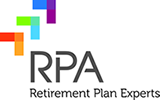Top Heavy Plan Basics
What are the top heavy rules? In general, a defined contribution plan (i.e. 401(k), profit sharing, money purchase, etc.) is considered to be top heavy when more than 60% of plan assets are attributable to "key employees" as of the "determination date". Top heavy plans are subject to certain minimum contribution and vesting requirements. Who

